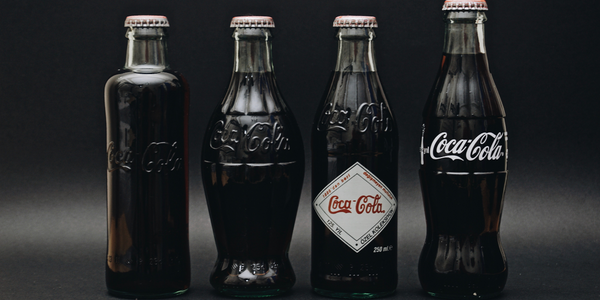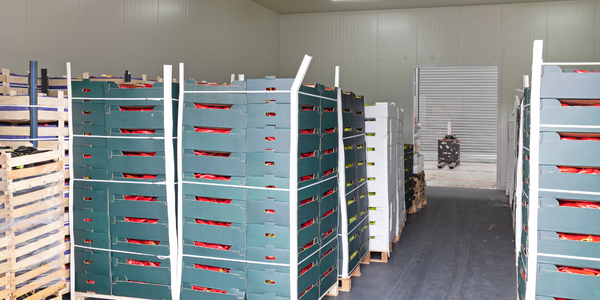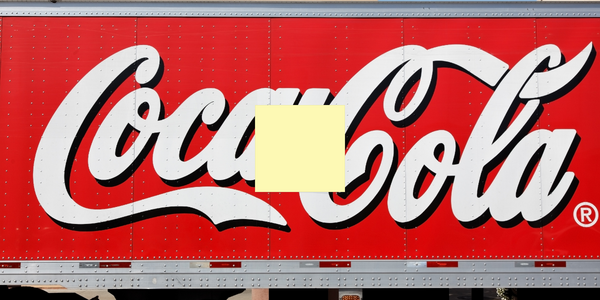公司规模
Large Corporate
地区
- America
国家
- United States
产品
- Kuebix TMS
技术栈
- Cloud-based TMS
实施规模
- Enterprise-wide Deployment
影响指标
- Cost Savings
- Productivity Improvements
技术
- 功能应用 - 车队管理系统 (FMS)
适用行业
- 食品与饮料
适用功能
- 物流运输
用例
- 车队管理
- 供应链可见性(SCV)
服务
- 云规划/设计/实施服务
关于客户
Hanover Foods is a privately held manufacturer of canned and frozen products. The company's products are featured in large scale supermarkets throughout the Northeast. The company was using a manual freight management process until 2016. The process was long and arduous, and the company was in need of an automated, feature-rich, TMS platform. They wanted a solution that would vastly improve the visibility across its transportation network. Some of the key requirements during the selection process included the ability to quickly generate accurate reports concerning the prior week’s on-time deliveries. The company also wanted to digitize its manual accounts payable process, which often took five or more hours a month for the controller to manage.
挑战
Until 2016, Hanover Foods Corporation was using a manual freight management process which was long and arduous. The company was in need of an automated, feature-rich, TMS platform. They wanted a solution that would vastly improve the visibility across its transportation network. Some of the key requirements during the selection process included the ability to quickly generate accurate reports concerning the prior week’s on-time deliveries. The company also wanted to digitize its manual accounts payable process, which often took five or more hours a month for the controller to manage.
解决方案
Hanover Foods chose Kuebix TMS as their solution. Kuebix was already serving numerous companies that Hanover Foods was working with such as Topco, Ahold and Weis. Other selling points included Kuebix’s route optimization and how the platform would allow Hanover Foods to better collaborate with its carriers. A vast improvement over its previously manual system, the TMS handles all shipment scheduling, dock scheduling, invoicing, and rate tendering. The implementation of Kuebix TMS allowed Hanover Foods to transition from manual processes to a fully-automated, cloud-based TMS.
运营影响
数量效益

Case Study missing?
Start adding your own!
Register with your work email and create a new case study profile for your business.
相关案例.

Case Study
The Kellogg Company
Kellogg keeps a close eye on its trade spend, analyzing large volumes of data and running complex simulations to predict which promotional activities will be the most effective. Kellogg needed to decrease the trade spend but its traditional relational database on premises could not keep up with the pace of demand.

Case Study
HEINEKEN Uses the Cloud to Reach 10.5 Million Consumers
For 2012 campaign, the Bond promotion, it planned to launch the campaign at the same time everywhere on the planet. That created unprecedented challenges for HEINEKEN—nowhere more so than in its technology operation. The primary digital content for the campaign was a 100-megabyte movie that had to play flawlessly for millions of viewers worldwide. After all, Bond never fails. No one was going to tolerate a technology failure that might bruise his brand.Previously, HEINEKEN had supported digital media at its outsourced datacenter. But that datacenter lacked the computing resources HEINEKEN needed, and building them—especially to support peak traffic that would total millions of simultaneous hits—would have been both time-consuming and expensive. Nor would it have provided the geographic reach that HEINEKEN needed to minimize latency worldwide.

Case Study
Energy Management System at Sugar Industry
The company wanted to use the information from the system to claim under the renewable energy certificate scheme. The benefit to the company under the renewable energy certificates is Rs 75 million a year. To enable the above, an end-to-end solution for load monitoring, consumption monitoring, online data monitoring, automatic meter data acquisition which can be exported to SAP and other applications is required.

Case Study
Coca Cola Swaziland Conco Case Study
Coco Cola Swaziland, South Africa would like to find a solution that would enable the following results: - Reduce energy consumption by 20% in one year. - Formulate a series of strategic initiatives that would enlist the commitment of corporate management and create employee awareness while helping meet departmental targets and investing in tools that assist with energy management. - Formulate a series of tactical initiatives that would optimize energy usage on the shop floor. These would include charging forklifts and running cold rooms only during off-peak periods, running the dust extractors only during working hours and basing lights and air-conditioning on someone’s presence. - Increase visibility into the factory and other processes. - Enable limited, non-intrusive control functions for certain processes.

Case Study
Temperature Monitoring for Restaurant Food Storage
When it came to implementing a solution, Mr. Nesbitt had an idea of what functionality that he wanted. Although not mandated by Health Canada, Mr. Nesbitt wanted to ensure quality control issues met the highest possible standards as part of his commitment to top-of-class food services. This wish list included an easy-to use temperature-monitoring system that could provide a visible display of the temperatures of all of his refrigerators and freezers, including historical information so that he could review the performance of his equipment. It also had to provide alert notification (but email alerts and SMS text message alerts) to alert key staff in the event that a cooling system was exceeding pre-set warning limits.

Case Study
Coca-Cola Refreshments, U.S.
Coca-Cola Refreshments owns and manages Coca-Cola branded refrigerators in retail establishments. Legacy systems were used to locate equipment information by logging onto multiple servers which took up to 8 hours to update information on 30-40 units. The company had no overall visibility into equipment status or maintenance history.







